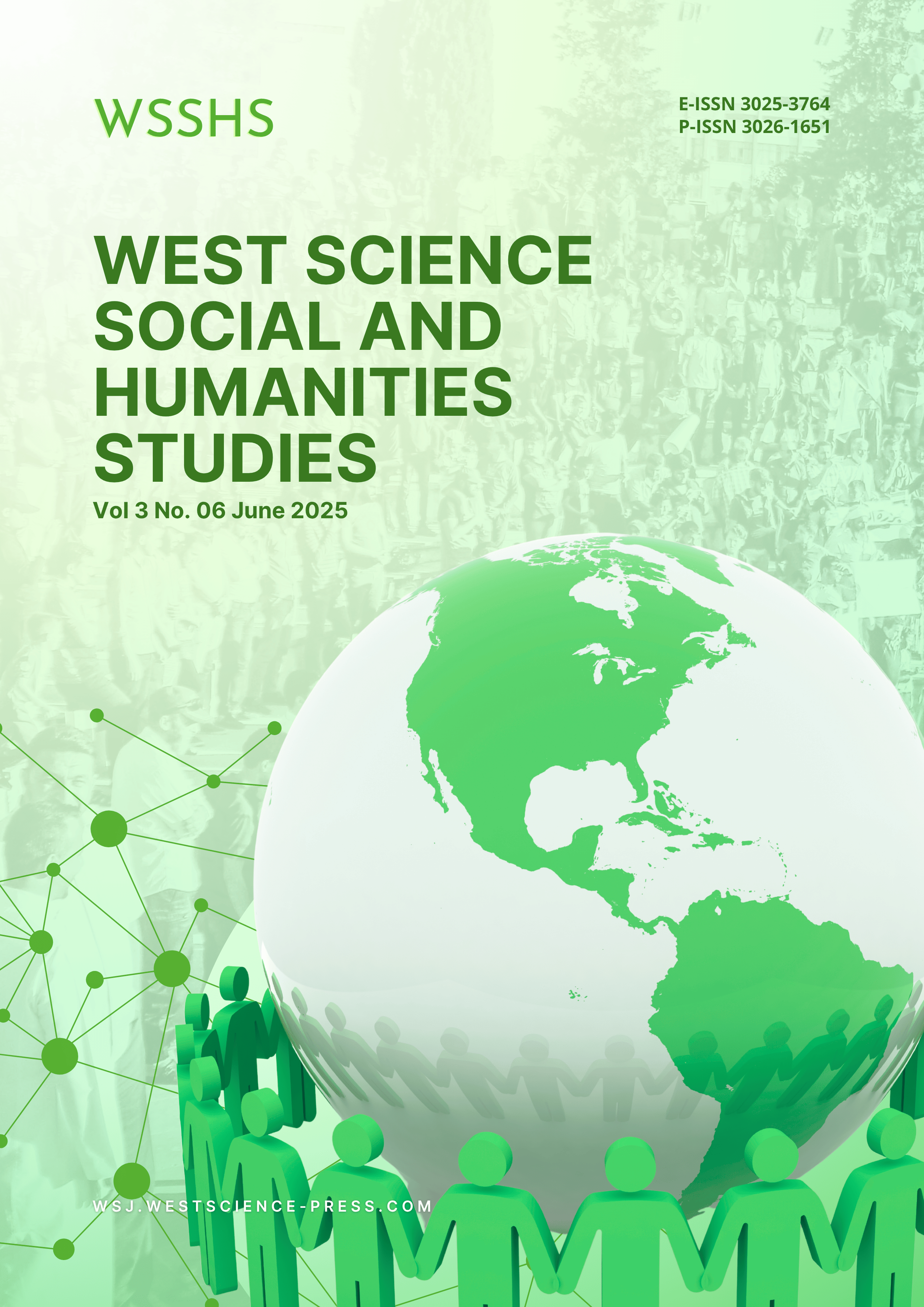Eco-Awareness and Marketing Strategy of Generation Z: A Bibliometric Study
DOI:
https://doi.org/10.58812/wsshs.v3i06.2009Keywords:
Generation Z, Eco-Awareness, Green Marketing, Sustainable Consumption, Bibliometric AnalysisAbstract
This study presents a bibliometric analysis of the academic literature at the intersection of eco-awareness and marketing strategies with a specific focus on Generation Z. Using data retrieved from the Scopus database and analyzed through VOSviewer, the study maps keyword co-occurrence patterns, author collaboration networks, temporal research trends, and country-level contributions. The findings reveal that research in this field is centered on core themes such as sustainability, green marketing, and consumer behavior, with increasing attention to emerging topics like sustainable consumption, eco-labeling, and environmental attitudes. Prominent contributors include authors from India, China, and the United States, while collaboration networks indicate strong intra-regional ties but limited cross-regional integration. The study identifies significant research gaps in underrepresented regions and calls for deeper interdisciplinary and intercultural engagement. The results provide valuable insights for academics and practitioners seeking to understand and engage the eco-conscious behavior of Generation Z through effective and authentic marketing strategies.
References
[1] S. Verma, S. Tandon, and D. Tripathi, “The Green Generation: A Study on How Gen Z is Redefining Consumerism in Delhi”.
[2] S. KOOMAN, “Navigating Eco-Conscious Paradoxes: Coping Mechanisms of Gen Z Travelers,” 2025.
[3] S. Yadav, “Education for Sustainable Awareness With Integrating Eco Awareness Into Educational Curricula: Strategies and Challenges,” in Exploring Pillars of Sustainability for Modern Age Improvements, IGI Global Scientific Publishing, 2025, pp. 103–122.
[4] T. Z. Z. Machová, “ECOLOGICAL CONSCIOUS CONSUMER BEHAVIOUR FROM THE VIEWPOINT OF DIFFERENT GENERATIONS AND GENDERS”.
[5] A. H. Teng and E. Halim, “The Impact of User-Generated Content and Digitization in Green Marketing towards Green Consumer Behaviour to Use E-commerce,” in 2024 International Conference on Intelligent Cybernetics Technology & Applications (ICICyTA), IEEE, 2024, pp. 370–376.
[6] R. S. Malyan and P. Duhan, “Eco-Awareness: Imbibing Environmental Values in Consumers,” in Green Consumerism: Perspectives, Sustainability, and Behavior, Apple Academic Press, 2018, pp. 291–314.
[7] N. Donthu, S. Kumar, D. Mukherjee, N. Pandey, and W. M. Lim, “How to conduct a bibliometric analysis: An overview and guidelines,” J. Bus. Res., vol. 133, pp. 285–296, 2021.
[8] B. Chekima, S. A. W. S. K. Wafa, O. A. Igau, S. Chekima, and S. L. Sondoh Jr, “Examining green consumerism motivational drivers: does premium price and demographics matter to green purchasing?,” J. Clean. Prod., vol. 112, pp. 3436–3450, 2016.
[9] R. Lozano, “Towards better embedding sustainability into companies’ systems: an analysis of voluntary corporate initiatives,” J. Clean. Prod., vol. 25, pp. 14–26, 2012.
[10] Y. J. Kim, D. Njite, and M. Hancer, “Anticipated emotion in consumers’ intentions to select eco-friendly restaurants: Augmenting the theory of planned behavior,” Int. J. Hosp. Manag., vol. 34, pp. 255–262, 2013.
[11] J. Jansson, “Consumer eco‐innovation adoption: assessing attitudinal factors and perceived product characteristics,” Bus. Strateg. Environ., vol. 20, no. 3, pp. 192–210, 2011.
[12] F. Testa, F. Iraldo, A. Vaccari, and E. Ferrari, “Why eco‐labels can be effective marketing tools: Evidence from a study on Italian consumers,” Bus. Strateg. Environ., vol. 24, no. 4, pp. 252–265, 2015.
[13] R. M. Dangelico, P. Pontrandolfo, and D. Pujari, “Developing sustainable new products in the textile and upholstered furniture industries: Role of external integrative capabilities,” J. Prod. Innov. Manag., vol. 30, no. 4, pp. 642–658, 2013.
[14] C. Herbes, C. Beuthner, and I. Ramme, “Consumer attitudes towards biobased packaging–A cross-cultural comparative study,” J. Clean. Prod., vol. 194, pp. 203–218, 2018.
[15] K. M. R. Taufique, A. Vocino, and M. J. Polonsky, “The influence of eco-label knowledge and trust on pro-environmental consumer behaviour in an emerging market,” J. Strateg. Mark., vol. 25, no. 7, pp. 511–529, 2017.
[16] A. Culotta and J. Cutler, “Mining brand perceptions from twitter social networks,” Mark. Sci., vol. 35, no. 3, pp. 343–362, 2016.
[17] C.-H. Su, C.-H. Tsai, M.-H. Chen, and W. Q. Lv, “US sustainable food market generation Z consumer segments,” Sustainability, vol. 11, no. 13, p. 3607, 2019.
[18] D. A. Hershey, J. M. Jacobs-Lawson, and J. T. Austin, “26 Effective Financial Planning for Retirement,” Oxford Handb. Retire., p. 402, 2013.
[19] L. S. Low, “Charting Stability: COVID-19 Conscious Retirement Planning for Tomorrow,” Available SSRN 4858055, 2024.
[20] L. L. Shin, “Charting Stability: COVID-19 Conscious Retirement Planning for Tomorrow”.
[21] J. Morduch and R. Schneider, The financial diaries: How American families cope in a world of uncertainty. Princeton University Press, 2017.
Downloads
Published
Issue
Section
License
Copyright (c) 2025 Loso Judijanto, Hanif Hasan, Andri Ardhiyansyah

This work is licensed under a Creative Commons Attribution-ShareAlike 4.0 International License.




















 Instagram
Instagram 